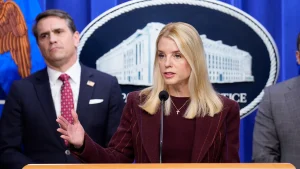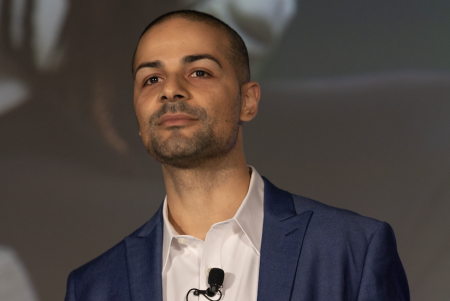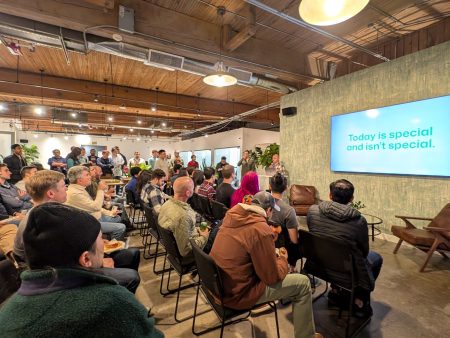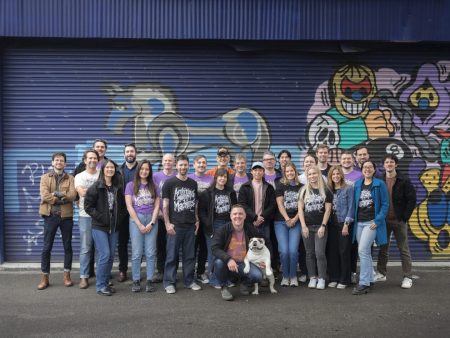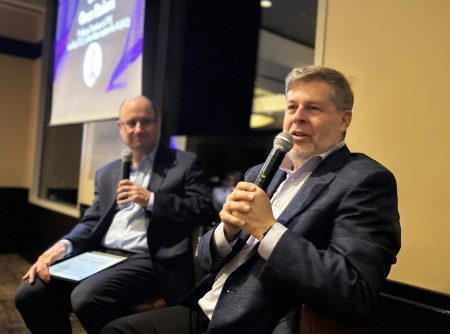Preventing deforestation is an urgent priority in the fight against climate change, a sentiment echoed by experts as recent research indicates that efforts to meet global carbon emissions targets are falling short. The rise of fossil fuel proponents in leadership positions, notably under President-elect Donald Trump, has led to a sense of despair among climate advocates. In response to this bleak scenario, Mike Rea, a Seattle entrepreneur, is launching ClimeOn, a startup aimed at empowering individuals and families to take action in addressing the climate crisis. ClimeOn will provide educational workshops and resources that highlight both the challenges posed by climate change and the most effective solutions, focusing particularly on mental health support to help individuals manage climate anxiety.
Rea’s vision is to encourage philanthropy and impact investing among those concerned about climate issues. He believes that by focusing on impactful actions, individuals can channel their resources effectively. Having spent much of his career in roles that connect people with meaningful causes, including as the executive director of E8, a climate-focused angel investing group, Rea brings a wealth of experience in utilizing philanthropic capital effectively. In his view, directing philanthropic dollars into mission-driven startups presents a lower-risk alternative for investors looking to make a difference, especially in areas pertinent to mitigating climate change such as deforestation and methane emission reduction.
ClimeOn is currently wrapping up its research and development phase, with plans to launch workshops within the next year. Rea aims to mobilize cash flows towards initiatives that can yield quick and significant results. He is actively seeking funding through philanthropy, which will include a unique grant model allowing donors to receive a small return on their contributions. The startup’s primary audience will be high-net-worth individuals, with a business model that incorporates fees for workshops and consulting, as well as subscription options. Rea recognizes the lack of resources prioritizing climate education that intertwines philanthropy and mental health support, establishing ClimeOn as a unique offering in the climate action space.
Despite the challenges posed by the political landscape, there is potential for climate philanthropy to gather momentum. Current data reveals that a mere 2% of philanthropic funds are allocated towards climate initiatives, even though there is considerable liquidity in the charitable sector, with donor-advised funds in the U.S. totaling approximately $252 billion. The anticipated administration of Trump is expected to prompt a shift in philanthropic focus towards regional and state-level climate efforts, while federal funding may take on a more defensive posture, echoing patterns from his first term in office. Observers stress the necessity of unrestricted philanthropy that grants recipient organizations the flexibility to direct funds where they are most urgently required.
In the context of philanthropic contributions, organizations like the Ballmer Group, created by former Microsoft CEO Steve Ballmer, exemplify effective climate change mitigation efforts. Rea hopes to inspire tech company employees, especially from Microsoft and Amazon, as well as successful startup founders, to invest their resources into climate solutions. He has initiated discussions with employee giving programs and personal wealth advisors to facilitate this shift in funding. Alongside him, leaders in the philanthropic space, like Kathleen Simpson from The Russell Family Foundation, reinforce the importance of using endowments strategically to tackle climate issues, amplifying organizational capacity beyond traditional grant-making.
As the landscape for climate investments evolves, the first Trump administration saw a significant rise in U.S. climate investments, which reached $14.1 billion by 2020. With approximately $300 billion in venture capital available, optimism exists that a similar rise will occur again under the upcoming administration. Rea has built a diverse team to tackle the climate crisis, incorporating experts from psychology, science, and climate education to frame ClimeOn’s efforts in a holistic manner. With additional advisors from various disciplines, Rea firmly believes that the time to rally support for climate initiatives is imperative, emphasizing the need for a collective response to the environmental crisis at hand.
